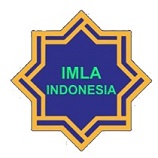THE RECONSTRUCTION OF EGYPTIAN WOMEN'S ROLES IN THE NETFLIX SERIES AL-BACHTSU ‘AN OLA
Abstract
The patriarchy that prevails in Egypt is frequently blamed for the domestication of women in that country. Al-Bachtsu 'an Ola, a Netflix series, challenges this narrative by showing a different notion about current Egyptian women. This paper examines the role of Egyptian women in today's modern society. This study examines the role of Egyptian women in today's modern society. The analysis examined situations and dialogues that reveal the reconstruction of women's roles in modern Egyptian society using feminist literary criticism as a perspective. The findings showed that the series depicts modern Egyptian women redefining their social roles in public.
Keywords
Full Text:
PDF (Bahasa Indonesia)References
An Nur, F., Audyana, A., & Gurniawati, R. (2020). Ketidakadilan Gender Pada Acara Tv Sinema Indosiar: Telaah Perspektif Strukturasi Giddens. Jurnal Riset Komunikasi, 3(1), 96–107. https://doi.org/10.24329/jurkom.v3i1.109
Bustam, B. M. R. (2011). Potensi perempuan mesir pasca-revolusi 1952: Kajian Sosiologi Sastra Dalam Struktural Genetik dan Feminis Terhadap Novel-Novel Najib al-Kilany. Universitas Gadjah Mada.
Bustam, B. M. R. (2013). Citra Perempuan Enterpreneur dalam Novel Arab: Analisis Sosiologi Sastra dan Kritik Sastra Feminis Terhadap Novel Malikatul ’Inab Karya Najib Kilany. Jurnal CMES, VI(1), 4–16.
Ch, Mufidah; Basri, Hassan; Sholihah, N. (2021). Analisis Gender dalam Novel “Aku Lupa Bahwa Aku Perempuan” Karya Ihsan Abdul Quddus Perspektif Emansipasi Perempuan Qasim Amin. Gender Equality: International Journal of Child and Gender Studies, 7(1), 58–69. https://doi.org/10.22373/equality.v7i1.8660
El Saadawi, N. (2015). The Hidden Face of Eve. In The Hidden Face of Eve. Zed Books. https://doi.org/10.5040/9781350251076
Friedan, B. (2001). The Feminine Mystique. In U-bøkene (fifth edit). Norton & Company, Inc.
Halim, W. (2015). Islam and Its Impact on Women’s Status and Role in Egypt. JICSA (Journal of Islamic Civilization in Southeast Asia), 4(2). https://doi.org/10.24252/jicsa.v4i2a1
Hasyim, N. (2020). Good Boys Doing Feminism: Maskulinitas dan Masa Depan Laki-laki Baru. EA Book.
Hiyad, H. J. (2020). The History of Feminism and its Transformations through Time: Egypt as a Model. The Egyptian Journal of Social and Behavioral Sciences, 1, 88–139. https://doi.org/10.36823/20209
Khair, R. (2020). the Images of Egyptian Women in “Cleopatra Wa Mac” Short Story and “Pudarnya Pesona Cleopatra” Mini Novel (Citra Perempuan Mesir Dalam Cerpen “Cleopatra Wa Maq” Dan Novel Mini ’Pudarnya Pesona Cleopatra’). Leksema: Jurnal Bahasa Dan Sastra, 5(1), 95–109. https://doi.org/10.22515/ljbs.v5i1.2091
Mauliyah, N. I., & Sinambela, E. A. (2019). Peran Kepemimpinan Perempuan Dalam Pengambilan Keputusan Bisnis. An-Nisa’ : Jurnal Kajian Perempuan Dan Keislaman, 12(1), 45–57. https://doi.org/10.35719/annisa.v12i1.7
McRobbie, A. (2004). Post-feminism and popular culture. Feminist Media Studies, 4(3), 255–264. https://doi.org/10.1080/1468077042000309937
Mendoza, J. E., Tolba, M., & Saleh, Y. (2020). Strengthening marriages in Egypt: Impact of divorce on women. Behavioral Sciences, 10(1), 1–8. https://doi.org/10.3390/bs10010014
Reed, E. (2020). Mitos Inferioritas Perempuan (P. K. Dipta (Ed.); Edisi 3). Penerbit Independen.
Shahin, M., & El-Ghazaly, Y. (2017). The Impact of Notions of Nationalism on Women’s Rights in Egypt. Studies in Ethnicity and Nationalism, 17(2), 177–192. https://doi.org/10.1111/sena.12250
Singerman, D. (2013). YOUTH, gender, and dignity in the egyptian uprising. Journal of Middle East Women’s Studies, 9(3), 1–27. https://doi.org/10.2979/jmiddeastwomstud.9.3.1
Udasmoro, Wening dan Nayati, W. (Ed.). (2020). Interseksi Gender Perspektif Multidimensional Terhadap Diri, Tubuh, dan Seksualitas dalam Kajian Sastra (I). Gadjah Mada University Press.
Udasmoro, W. (Ed.). (2018). Dari Doing ke Undoing Gender. Gadjah Mada University Press.
Utami, Shinta Fitria and Bustam, B. M. R. (2021). The Silencing of Student Movement Against The Egyptian Pro-Capitalism Government in Radwa Ashour’s Novel Faraj. Jurnal CMES, XIV(Nomor 1 Edisi Januari-Juni 2021), 33–46. https://doi.org/https://dx.doi.org/10.20961/cmes.15.1.50450
DOI: https://doi.org/10.20961/cmes.15.2.63915
Refbacks
- There are currently no refbacks.
Copyright (c) 2022 Center of Middle Eastern Studies (CMES): Jurnal Studi Timur Tengah

This work is licensed under a Creative Commons Attribution-ShareAlike 4.0 International License.
| Copyright of CMES ISSN 2085-563X (print) and ISSN 2502-1044 (online) CMES Journal is licensed under a Creative Commons Attribution-ShareAlike 4.0 International License. | CMES (Center of Middle Eastern Studies) Print ISSN: 2085-563X Online ISSN: 2502-1044 Website: https://jurnal.uns.ac.id/cmes/index Email: cmes@mail.uns.ac.id Published by: Arabic Literature Department, Faculty of Cultural Science, Universitas Sebelas Maret Ir. Sutami Street, No. 36A, Surakarta, Jawa Tengah 57126 Phone: +62 822-4000-2313 |















